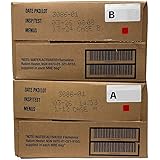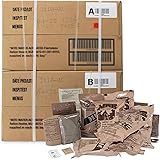Understanding the Limitations of Conventional Methods
Analyzing Cell Phone Dependency
We all rely on our cell phones every day, right? They’re our lifelines, keeping us connected with friends, family, and the world. But in times of emergency, especially natural disasters, these devices can fail us. The sheer volume of calls and messages can overload networks, causing them to crash when we need them the most.
I remember the time when a major hurricane hit our area. Cell towers were down, and I couldn’t reach my loved ones. It was alarming! You start to realize that you can’t just count on your phone during widespread emergencies.
This vulnerability stresses the importance of having other ways to communicate. Forgetting that your trusty smartphone isn’t your only option can leave you in a bind. We need to be prepared and aware of the alternatives that can come to our rescue.
Internet Outages and Their Impact
Think about it: how often do we turn to the internet for information? Whether it’s social media, news updates, or emails, the internet plays a crucial role in how we communicate. But what happens when an outage occurs? Ground zero for information is suddenly dry! And I’ve seen this happen more times than I can count, especially in storm-prone areas.
During another rough storm a while back, I was glued to my computer, refreshing pages, but nothing was loading. It felt like I was in a communication blackout. Those moments teach you that while the internet is a fantastic tool, it’s also incredibly fragile in dire situations.
Therefore, bolstering your communication strategy with alternatives becomes essential. We need to think ahead and consider what else can help us stay connected when Wi-Fi fails us.
Disaster Preparedness and Planning
One of the most significant lessons from my own experiences is that preparation is key. Having a communication plan in place beforehand can make all the difference. I’ve learned to sit down with my family and discuss what we would do if the worst happened. This includes creating a list of contacts and places to meet.
It’s not enough to say, “Hey, we’ll find each other.” You need to be specific. When I was planning for a recent evacuation during fire season, I had a checklist of how we would inform one another if we got separated. A clear strategy empowers you and gives peace of mind.
== > What if ... Get a FREE Subscription to PREPARE
Don’t wait until the emergency strikes; use calm moments to develop these plans. With clear communication strategies in place, you’ll feel way more prepared when the unexpected hits.
Exploring Alternative Communication Methods
Two-Way Radios
So, let’s talk two-way radios. These little devices may seem old-school, but they’re a game-changer. I invested in a pair of walkie-talkies for my family after one too many failed phone calls in emergencies. They can operate without any network and work over short distances, which makes them excellent for localized communication.
Using two-way radios during a recent camping trip really showcased their effectiveness. We split up to explore, and I loved knowing we could easily check in with each other, no cell service required. Plus, they’re usually very user-friendly—come on, how hard can it be to press a button and talk?
For larger groups during emergencies, having multiple radios can become even more advantageous. They keep you updated and can help coordinate actions without relying on congested networks.
Ham Radio Systems
Now, ham radios take communication to another level. They’re not just for hobbyists but are often used for emergency communication. My neighbor is an amateur radio operator, and it opened my eyes to how these systems work. They can relay messages over vast distances, often reaching other states or countries!
During a blackout in my area, he was able to communicate with people several towns away. It’s pretty incredible! Ham radio users often have emergency protocols set up that could be invaluable during crises.
However, it does require a license and some training. But trust me, investing time and effort into getting skilled with ham radios can be a lifesaver in emergencies. It’s worth considering if you’re serious about emergency preparedness.
Community Alert Systems
What if I told you that your community can be your best resource during an emergency? Many local governments and organizations offer alert systems that send messages via text or email for emergencies. I signed up for mine after hearing about it from a neighbor, and it keeps me in the loop about local hazards.
These alerts can be life-savers, effectively providing real-time updates that inform you about evacuations, safety notices, and other crucial information. It’s just another tool to integrate into your communications strategy.
Encouraging friends and neighbors to sign up can strengthen community resilience. Together, with those alerts, we can respond more effectively rather than being left in the dark.
Get Preparedness and Self-Reliance Tips. Subscribe Now!
Establishing Communication Networks
Creating a Family Emergency Plan
As mentioned earlier, family plans are vital! You should set a designated meeting place, define how to check in if separated, and discuss preferred communication methods. I’ve created a colorful poster for my fridge, outlining our family emergency contacts and our plan. It’s a navigational tool in stressful situations!
Reviewing this plan with everyone regularly ensures that they remember it. Plus, kids feel empowered when they understand what to do in emergencies. I love hearing my daughter recite our plan—it gives me confidence that she knows what to do if an emergency arises.
Updating the plan as your lives change is equally crucial. Moving to a new school or having a new phone number? Make sure everyone is aware of these adjustments.
Engaging with Local Resources
Find out what resources are available in your community. Local organizations often create networks during emergencies. I remember getting involved in local emergency response teams after an incident in our neighborhood. It’s a way to connect with others who are also conscious about preparedness.
These connections can offer leverage when a crisis hits. They help you understand local resources and how to communicate effectively during emergencies. Plus, sharing strategies with fellow residents can lead to innovative solutions that you might not have thought of on your own!
Networking also creates bonds with your community so that everyone can support each other through difficult times. This human element can be the most comforting during stressful emergencies.
Using Social Media Wisely
While social media wasn’t my first thought for emergency communication, it can certainly play a role. I’ve seen how platforms like Facebook and Twitter provide localized news through municipal pages or community groups during emergencies. They are great places to gather information!
However, it’s crucial to verify the news shared on these platforms. In my experience, misinformation can spread like wildfire, potentially creating panic. So I always recommend following trusted sources and local agencies to get the best information.
When emergency strikes, establish a group chat with reliable friends so that you can share real-time information and support each other. It can be reassuring to check in and stay connected, even when traditional methods fail.
Conclusion: Making a Communication Plan
So, wrapping it all up, it’s clear we can’t solely rely on our phones and the internet for emergency communication. I’ve shared some of my experiences and knowledge here, and I truly believe that having a backup plan is essential. Alternative methods like two-way radios or ham systems, coupled with family preparedness, community alerts, and social media strategy, can drastically improve your ability to stay safe and connected during emergencies.
It’s all about being proactive! Don’t wait until disaster strikes—take the time now to explore these options and create your own emergency communication plan. You’ll feel more secure knowing you’ve taken these steps.
The best part? You’re not alone in this; I encourage you to talk to your family and friends about their ideas and experiences too. Let’s empower each other to be better prepared together!
FAQs
1. Why shouldn’t I rely on my cell phone in an emergency?
Cell phones can often become overloaded or fail during widespread emergencies due to network congestion. Having alternative communication methods is important for reliability.
2. What are some effective alternative communication methods?
Consider using two-way radios, ham radio systems, and community alert systems as effective ways to communicate without relying solely on phones or the internet.
3. How can I prepare my family for emergencies?
Work together to develop a family emergency plan that outlines communication methods, designated meeting places, and contact information. Regularly review and practice this plan.
4. Are community resources important in emergencies?
Absolutely! Engaging with local resources can provide vital support and information during emergencies, and strengthening those community relationships can make a big difference.
5. How can social media help in an emergency situation?
Social media platforms can provide real-time updates from trusted sources or local agencies. Just be cautious about misinformation and verify facts before sharing.






